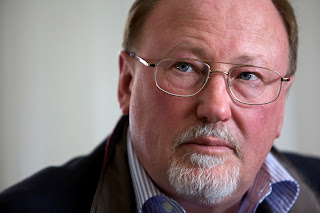The keynote speaker at next month’s International Foodservice Sustainability Symposium will be Julian Cribb, author of “The Coming Famine.” Christopher Koetke, executive director of the School of Culinary Arts at IFSS host Kendall College, recently sat down with Cribb to discuss how chefs can help to avert a catastrophe in the food supply.
Cribb: For the last 20 years, I feel that the world has been rather complacent about its food supply and scarcity will sneak up on us if we’re not careful. It’s good to know that the chefs and restaurateurs of the world, who have a tremendous effect on how we eat, have a strong interest in this topic.
Koetke: In reading your book, I would characterize it as both powerful and horrifying. As a brief introduction for those who haven’t read it yet, could you please share its premise and how you came to write it?
Cribb: As an agricultural journalist for about 40 years and now a general science journalist, I’ve always had a strong interest in the food supply, and how it can be produced efficiently and sustainably. In the first decade of this century, I could see the food supply was not keeping up with demand. Grain stocks were going down and down at a time when the population was growing and nearly developed nations like China and India with a rising middle class, began demanding more food, especially protein. At the same time, almost everything we need to produce food sustainability is running out: fresh water, good farmland, oil and fertilizer, which are all finite resources. Further, agricultural science has been neglected in all of the major developed countries of the world for the last couple decades and the climate is changing profoundly. Our civilization, which was founded on agriculture, is changing profoundly and we don’t know what the ultimate consequence of that change will be on our food supply.
Koetke: You talk about 2050 as critical for humanity. Why is 2050 such a milestone?
Cribb: The human population is still growing by about 100 million per year and people are living longer in developing countries. That means that sometime between 2030 and the end of the century, assuming there’s no awful war or devastating pandemic, we’ll have to be feeding 9 to 11 billion people until the population slowly begins to decline after the 2060s or 2070s; that’s roughly double the current population. Feeding this number of people is a very large challenge and we need to think about how we’re going to do it now, before the issue becomes critical. We’re already seeing some of the consequences in rising food prices because supply is not keeping up with demand worldwide.
Koetke: As chefs, we don’t typically think about water; we use it with abandon and the reality is there’s a price for that water and we don’t pay that fair price. Books like yours bring home the reality that you may not see them, but they’re still very real and they will be impacting our future so we need to do something about it
Cribb: Many countries, like Australia, are beginning to acknowledge that they’re not paying the right price for food. Farmers need to get paid better or the economic signal for them to produce won’t be there… It may seem expensive to the consumer, but today we’re paying for the food but not the landscape destruction that results from the growing process. It’s a short-sighted policy and our grandchildren will pay for it.

No comments:
Post a Comment